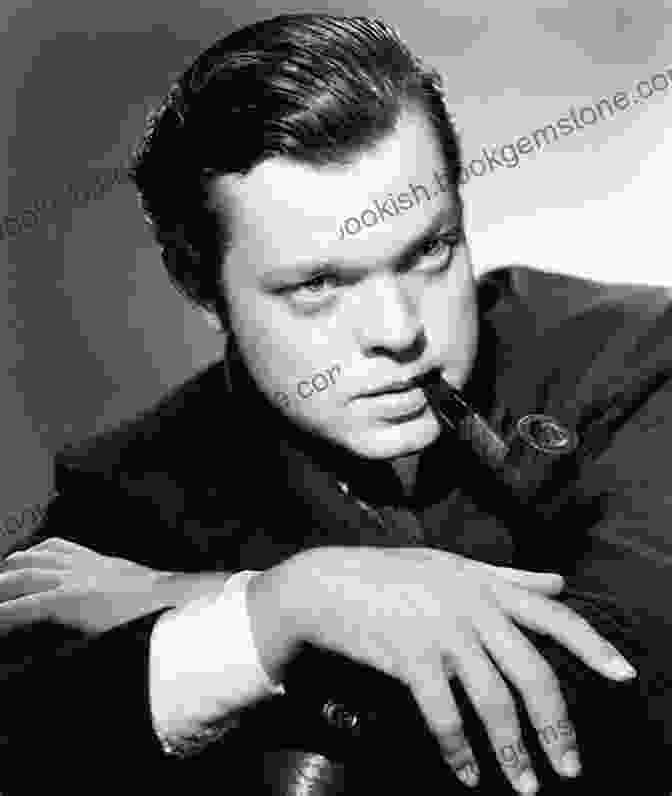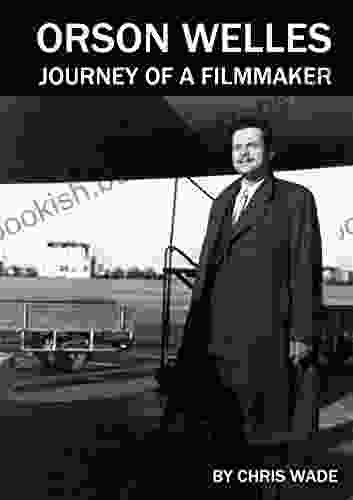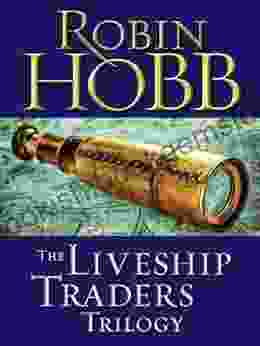Orson Welles, the enigmatic auteur and cinematic pioneer, left an unparalleled legacy on the silver screen. His groundbreaking techniques, audacious storytelling, and larger-than-life persona have captivated audiences for generations. This comprehensive article delves into the extraordinary journey of Welles, tracing his evolution from a precocious prodigy to a Hollywood icon and tireless innovator.
Early Life and The Mercury Theatre
Welles was born on May 6, 1915, in Kenosha, Wisconsin. His childhood was marked by a passion for theater and a voracious appetite for knowledge. After辍学, he joined a vaudeville troupe and honed his skills as an actor and director.
5 out of 5
| Language | : | English |
| File size | : | 24132 KB |
| Text-to-Speech | : | Enabled |
| Screen Reader | : | Supported |
| Enhanced typesetting | : | Enabled |
| Word Wise | : | Enabled |
| Print length | : | 132 pages |
| Lending | : | Enabled |
In 1937, Welles founded the Mercury Theatre, a renowned repertory company that became synonymous with his theatrical audacity. The company's productions, including "Julius Caesar" and "Macbeth," were characterized by their experimental staging, immersive atmosphere, and Welles's charismatic presence. The Mercury Theatre's success catapulted Welles to national prominence.
Citizen Kane: A Cinematic Masterpiece
In 1941, Welles directed and starred in his cinematic magnum opus, "Citizen Kane." Widely hailed as one of the greatest films ever made, "Citizen Kane" revolutionized filmmaking. Welles employed groundbreaking techniques, including deep focus photography, unconventional editing, and a complex narrative structure. The film's exploration of power, wealth, and the elusive nature of the American Dream cemented Welles's status as a visionary director.
Hollywood and Beyond
Despite the critical acclaim of "Citizen Kane," Welles faced challenges in Hollywood. His independent spirit and unconventional approach often clashed with studio executives. He embarked on a series of audacious but often troubled projects, including "The Stranger" (1946),"Othello" (1952),and "Touch of Evil" (1958).
Undeterred by setbacks, Welles continued to create innovative films throughout his career. He directed experimental works such as "The Trial" (1962),based on Franz Kafka's novel, and "F for Fake" (1973),a playful exploration of authenticity and deception. Welles also became a renowned actor, appearing in over 100 films, including "The Third Man" (1949),"The Lady from Shanghai" (1947),and "The Immortal Story" (1968).
International Influence and The Shadows
Welles's influence extended beyond the boundaries of Hollywood. He collaborated with renowned directors such as Akira Kurosawa, Jean Renoir, and Jacques Tourneur. Welles's unfinished masterpiece, "The Shadows," remains a testament to his visionary approach to filmmaking. Shot in Spain in the 1950s, "The Shadows" is a haunting and enigmatic exploration of love, loss, and the passage of time.
Later Years and Legacy
In his later years, Welles continued to push the boundaries of storytelling. He directed television specials, experimental shorts, and even a stage adaptation of Shakespeare's "King Lear" in 1982.
Orson Welles passed away on October 10, 1985, at the age of 70. His legacy lives on through the enduring power of his films, which continue to inspire and captivate audiences worldwide. Welles's innovative techniques, fearless storytelling, and unforgettable characters have cemented his place as one of the most influential and revered filmmakers of all time.
The journey of Orson Welles was a testament to the enduring power of artistic vision and the boundless possibilities of the cinematic medium. From his early days with the Mercury Theatre to his groundbreaking film directorial debut with "Citizen Kane" and beyond, Welles constantly challenged cinematic conventions and left an indelible mark on the silver screen. His passion for storytelling, his audacious filmmaking techniques, and his larger-than-life persona continue to inspire and captivate audiences to this day, ensuring that Orson Welles's cinematic legacy will endure for generations to come.
























































































































































































































































































































































































































































































































































































































































































































